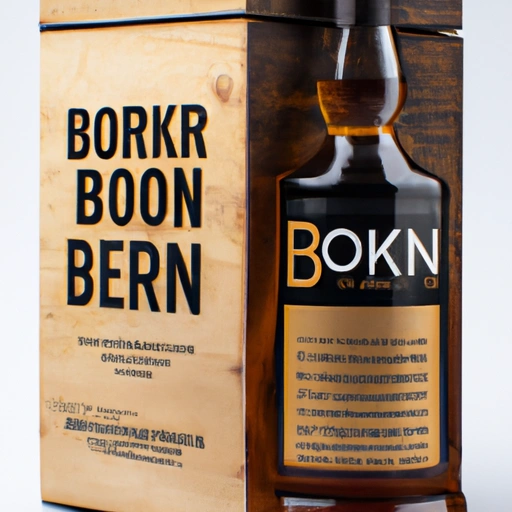Bourbon Whiskey
Description

Bourbon whiskey is a type of American whiskey, a barrel-aged distilled spirit made primarily from corn. The name derives from the French Bourbon dynasty, although the precise inspiration for the whiskey's name is uncertain. Bourbon has been distilled since the 18th century, but the name 'bourbon' was not applied until the 1850s, and the Kentucky region took pride in its production. By U.S. standards, bourbon must be made of a grain mixture that is at least 51% corn, aged in new charred oak barrels, distilled to no more than 160 (U.S.) proof, and entered into the barrel for aging at no more than 125 proof. Bourbon must also be bottled at 80 proof or more and be free from added coloring, flavoring, or other spirits. These regulations give bourbon its distinct taste and character.
Common uses
Bourbon whiskey is often enjoyed as a sipping spirit, either neat, with water, or on the rocks. It's also a popular base for many classic and modern cocktails, such as the Old Fashioned, Mint Julep, and Manhattan.
Nutritional value
Calories
A typical 1.5-ounce (44 ml) serving of bourbon contains approximately 97 calories.
Protein
Bourbon whiskey contains 0 grams of protein per serving.
Fat
There is no fat in bourbon whiskey.
Carbohydrates
Bourbon whiskey contains 0 grams of carbohydrates per serving.
Vitamins
There are no significant amounts of vitamins in bourbon whiskey.
Minerals
Bourbon does not provide substantial minerals to your diet.
Health benefits
While bourbon whiskey is not a significant source of nutrients, moderate alcohol consumption has been associated with some health benefits, such as the potential to reduce the risk of heart disease. However, these benefits are highly dependent on consumption patterns and individual health conditions.
Potential risks
Excessive alcohol consumption can lead to a range of health problems, including liver disease, addiction, and an increased risk of certain types of cancer. It is important to consume bourbon and other alcoholic beverages in moderation.
Common recipes
Bourbon can be used to create marinades, sauces, and glazes for meats, particularly pork and beef. It also complements desserts like bread pudding and pecan pie, and it can be an ingredient in confectionary items such as bourbon balls.
Cooking methods
Bourbon can be used in baking, sautéing, and grilling, often as part of a mixture or glaze. It can also be flambéed to add a distinctive smoky flavor to dishes.
Pairing with other ingredients
Bourbon pairs well with rich, smoky flavors and can be used to enhance the sweetness in desserts. It also complements savory dishes with a sweet element, such as barbecue sauce or dishes with a caramelized onion glaze.
Summary
Bourbon whiskey, with its complex flavor profile and versatility, is not only a beloved drink but also a valuable culinary ingredient. From savory dishes to sweet desserts, it adds depth and richness that is distinctly American. When used in cooking, it imparts a unique flavor that cannot be easily replicated with other ingredients, making it a favorite in kitchens and bars alike.